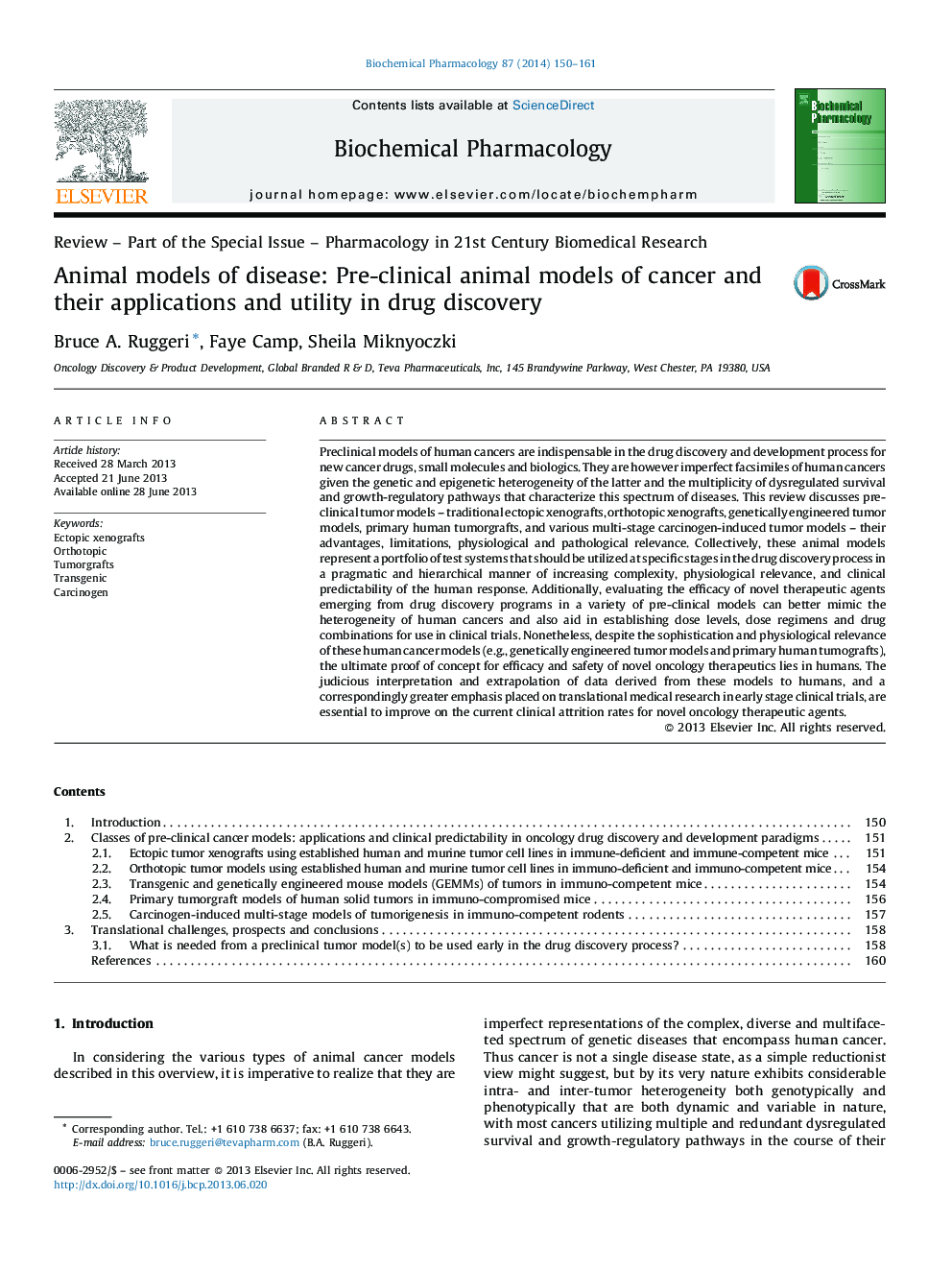| Article ID | Journal | Published Year | Pages | File Type |
|---|---|---|---|---|
| 2512419 | Biochemical Pharmacology | 2014 | 12 Pages |
Preclinical models of human cancers are indispensable in the drug discovery and development process for new cancer drugs, small molecules and biologics. They are however imperfect facsimiles of human cancers given the genetic and epigenetic heterogeneity of the latter and the multiplicity of dysregulated survival and growth-regulatory pathways that characterize this spectrum of diseases. This review discusses pre-clinical tumor models – traditional ectopic xenografts, orthotopic xenografts, genetically engineered tumor models, primary human tumorgrafts, and various multi-stage carcinogen-induced tumor models – their advantages, limitations, physiological and pathological relevance. Collectively, these animal models represent a portfolio of test systems that should be utilized at specific stages in the drug discovery process in a pragmatic and hierarchical manner of increasing complexity, physiological relevance, and clinical predictability of the human response. Additionally, evaluating the efficacy of novel therapeutic agents emerging from drug discovery programs in a variety of pre-clinical models can better mimic the heterogeneity of human cancers and also aid in establishing dose levels, dose regimens and drug combinations for use in clinical trials. Nonetheless, despite the sophistication and physiological relevance of these human cancer models (e.g., genetically engineered tumor models and primary human tumografts), the ultimate proof of concept for efficacy and safety of novel oncology therapeutics lies in humans. The judicious interpretation and extrapolation of data derived from these models to humans, and a correspondingly greater emphasis placed on translational medical research in early stage clinical trials, are essential to improve on the current clinical attrition rates for novel oncology therapeutic agents.
Graphical abstractFigure optionsDownload full-size imageDownload as PowerPoint slide
